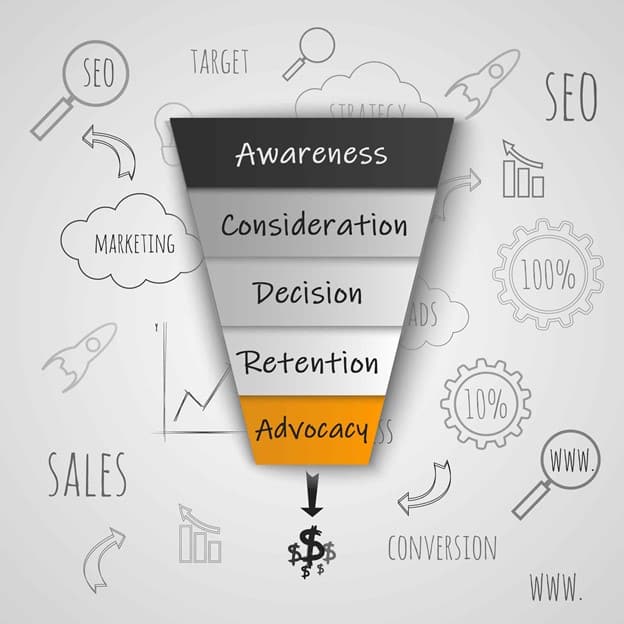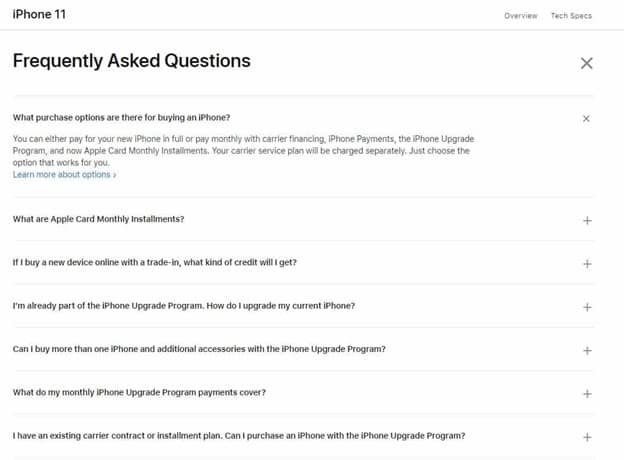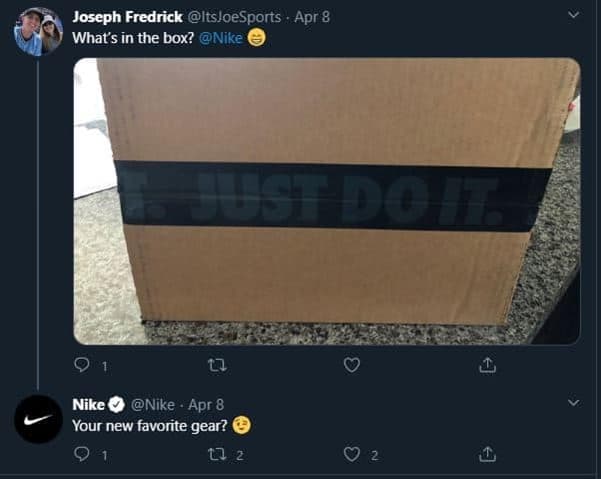2 Expert Tips for Writing Content for a Website

The best marketing strategies emphasize it again and again: You need to write content for your website. This seems daunting. How are you supposed to learn how to write content for a website? Home pages, landing pages, about us pages and dozens of blogs are necessary to boost traffic and find potential leads. Knowing where to start may seem almost impossible.
Take our advice: Start with the skeleton (i.e., the home page, product pages and contact us forms), and then add the rich details to create a website that visitors like and trust. It’s still a lot to write, but you get what’s most important done first.
You could skip the writing completely and hire a website content writing service to do it for you. However, if you choose to write it yourself, there are a few things you should keep in mind. Not only do you need a lot of content, but it needs to be high-quality and focused on your customers. We’ll show you how to do this effectively so that every piece of content has a purpose in your marketing strategy.
Why Write Content for Your Website?
Content is the fuel that feeds the fire in any marketing plan. As more and more marketing and advertising efforts switch to online tactics, content marketing has taken the lead in building brand image and finding potential customers.

There are two ways content marketing can be useful for your website. First, if done right, website content can improve your search engine rankings. This helps interested viewers find your website and the services you offer. Second, content can help persuade visitors to become customers. If the content is aimed at the audience, they may feel more inclined to buy your products and trust your brand.
Not just any content can produce these results, however. As you learn how to write content for your website, there are two strategies that can help you stay focused on the customer and bring in more traffic: SEO and the customer journey. Incorporate these into your writing, and your content will often be the most effective marketing tool on your website.
1. Use SEO Tactics and Strategies
The more people who visit your website, the more opportunities you have for sales conversions. This is the goal of search engine optimization, which helps your site be found by people looking for the information and/or services you provide.
Search engines such as Google use complex algorithms to find websites that answer search queries (what users type in the search bar). These algorithms use keywords to find web pages that seem to best answer a search query. Along with keywords, format and quality of writing are considered when ranking content in a user’s search results list.
The more search engine criteria your website meets, the higher it will rank in search results for specific keyword phrases that are typed in. Keep in mind that a majority of web users never make it past the first page of results and that the first five links on the first results page receive the majority of clicks, so a high search ranking is an essential component of increased visibility.
How To Write SEO Content for a Website
Writing content that can be found by search engines is important. It’s also crucial that it be found by users who are interested in similar topics. If someone researches “car repair Logan, UT”, you definitely want to be on the results list if you are a car repair shop in that location.
Improving your search ranking involve a few different techniques. Here are some tips you can use:
Write High-Quality Content
Learn how to write high-quality and engaging content for your website. If the content doesn’t provide real value and show your expertise on the subject, you’re doing it wrong. Search engine users are looking for information that helps them, and they don’t waste time on articles or content that seem fluffy, useless or confusing.

Readability is an important part of any piece of content. No matter your audience, you want them to understand and enjoy what they read. If you are targeting a general audience, use clear, understandable words.
Use Keywords Wisely
Because keywords are a huge part of SEO, you need to choose your keywords wisely. Naturally insert keywords in titles, meta descriptions, image alt tags, first and last paragraphs, H1s, H2s, H3s and evenly throughout the body content.
Don’t use keywords too much, though. Search engines penalize sites for repeating content or using too many keywords in succession (also known as keyword stuffing). Knowing how to include keywords for SEO is a must when it comes to website content writing.
Format Correctly and Use Pictures
As part of the algorithm, search engines are looking for content that is readable and useful to users. This means that with each article, you should be using headings, bullet points, short paragraphs and images. This is great for SEO, but it also looks much more appealing to readers.
Along with ensuring search engine algorithms are satisfied, a skilled content writer will also provide an enjoyable experience to readers. Consumers these days are savvier than ever and don’t appreciate blatant marketing efforts. Images should be a large part of your website content. For the maximum impact of images, try to put pictures every 200-300 words. This breaks up the text and gives readers visuals to digest.
Create Engaging Content
Content must be informative, entertaining and educational to sufficiently fulfill the need of all the visitors on your site, who will likely be on different stages of their customer journey (more on that later). Simply presenting a product and its features is not enough. You must also demonstrate the value of your business by showing how you can help customers.
Besides, you need interesting titles and content for users to click on. Learn how to write content for a website that is interesting and informative. Whatever you write about should fit underneath the umbrella of your niche and apply to your business. Content must also be unique from page to page of your site, as recycling blog posts, titles, and other content can lead to lower search rankings, fewer visitors and decreased opportunities to convert visitors into customers.
2. Create The Customer Journey
Consumers take many different steps from first realizing a need for a product or service to finally making a purchase. These steps comprise the customer journey, which all business owners should have a good understanding of to devise an effective website content creation strategy. In most cases, a customer journey will contain the following five stages:

- Stage 1: Awareness – At this point, a customer will realize he or she has a need that can be fulfilled by a specific product or service. The awareness stage involves information gathering on products or services, which can lead to your website content. Keep in mind that virtually all people perform research online before heading out to a store or contacting a company to schedule service.
- Stage 2: Consideration – After compiling cursory information during the awareness stage, consumers delve deeper into the details. Customers in the consideration stage often compare different local businesses to see how they measure up against each other.
- Stage 3: Decision – After completing research, a consumer is ready to make a decision based on the information acquired during the first two stages. At this point, consumers check online reviews, which highlight what a business does well and any areas where it’s lacking.
- Stage 4: Retention – The customer journey isn’t over once a consumer has made a transaction with your business. You’ll also need to take steps to retain this person’s business so they return again and again. Remember, it’s easier to retain an existing customer than it is to attract a new one.
- Stage 5: Advocacy – While repeat customers are essential to a thriving business, having your customers be your advocates is even better. Word of mouth is still a valuable commodity within online marketing, and the more positive the experience, the more likely a person is to be your business’s advocate.
Each of these five steps is a necessary part of the customer’s journey. It makes sense, however, that content marketing can guide each step.
How To Write Website Content for Each Stage of the Customer Journey
The most successful business sites make sure web content is available to satisfy each stage of the customer journey, which is another important reason to hire a capable website content writer or learn how to write content for a website on your own. Here are a few examples of the different types of articles and posts that make an impact throughout the purchasing process.
How-To Guides & Educational Info
Educational content, including instructional guides or how-tos, establishes your business as an authority in your field. It also shows that you’re capable of meeting customers’ needs or solving their problems during the initial phase of their research.
For example, if you own a plumbing company, you may hire a writing service to create blogs on common plumbing issues and how to deal with them (i.e., reach out to your company for professional assistance once a problem has been identified). Below is a great example where Home Depot demonstrates how to install one of their products, making the customer’s decision to buy from them that much easier.

Frequently Asked Questions (FAQs) & Datasheets
The need for pertinent information goes deeper during the consideration stage, and you must be able to provide relevant info so that a customer can feel confident choosing your business over a competitor.
Well-written, comprehensive FAQs increase consumer confidence by addressing common concerns, including questions about how a product works or how prices are determined. Datasheets are also quite valuable because they drill down into product details to provide a full understanding of function and construction. This type of content is often more technical than what’s provided during the previous stage. It requires time, as well as some experience in the industry, to learn how to write content for a website.
For example, Apple does a great job answering common questions and saving their customer support staff time by providing an FAQ for each of their products.

Calls-to-Action
When a visitor to your website is ready to make a buying decision, a well-placed call-to-action can be highly effective. Calls-to-action in website content writing include targeted language, such as “buy now” or “purchase,” that encourages readers to take certain steps. Additional examples include requests to download an informational packet, sign up for an email newsletter, or call to schedule a no-obligation consultation.
A call-to-action may be disguised by persuasive commentary, or it may be to the point with an “Order Now” button as you see here on the Tesla Model Y page.

Social Media Messaging & Requests for Testimonials
Content creation for the retention and advocacy stages of the customer journey often go hand in hand. You can learn how to create social media messages that compel satisfied customers to leave reviews and testimonials, which then go on to influence new visitors in the midst of their information-gathering process. Social media writers should also take the time to reply to follower comments, which strengthens engagement and makes customers feel more connected to your brand.
Nike is a perfect example of a brand that takes the time to interact with many of its social media followers.

How To Write Content For a Website Made Simple
Although it can be challenging to write so much content, as long as you keep in mind SEO tactics and the customer’s journey, you’ll be on the right track. Many business owners struggle to create meaningful and engaging content. As you follow SEO tactics, such as formatting and readability, as well as creating content specifically targeted at your customers, you can avoid these pitfalls.
And if you don’t have the time or resources to learn how to write content for a website, check out our Content Shop. We offer high-quality, SEO content that’s perfect for any industry or niche. Tell us what you need, pick the kind of content you’re looking for and receive timely content that meets search engine criteria and gives you an edge on your competitors.
- Your Guide to SEO Optimized Content - December 26, 2023
- 20 Business Blogging Statistics That Will Blow Your Mind - May 28, 2023
- Where To Find SEO Writers for Hire - May 20, 2023

